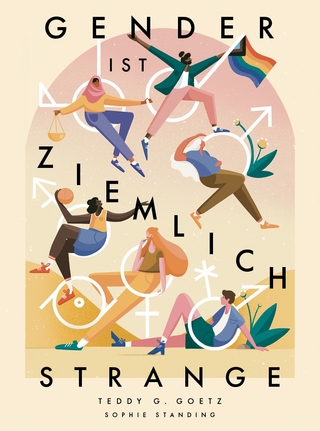
The Oxford Handbook of Comic Book Studies
Oxford University Press Inc (Verlag)
978-0-19-091794-4 (ISBN)
Comic book studies has developed as a solid academic discipline, becoming an increasingly vibrant field in the United States and globally. A growing number of dissertations, monographs, and edited books publish every year on the subject, while world comics represent the fastest-growing sector of publishing.
The Oxford Handbook of Comic Book Studies looks at the field systematically, examining the history and evolution of the genre from a global perspective. This includes a discussion of how comic books are built out of shared aesthetic systems such as literature, painting, drawing, photography, and film. The Handbook brings together readable, jargon-free essays written by established and emerging scholars from diverse geographic, institutional, gender, and national backgrounds. In particular, it explores how the term "global comics" has been defined, as well the major movements and trends that will drive the field in the years to come. Each essay will help readers understand comic books as a storytelling form grown within specific communities, and will also show how these forms exist within what can be considered a world system of comics.
Frederick Luis Aldama is award winning author, scholar, teacher and Distinguished University Professor at The Ohio State University. He is author, co-author, and editor of 48 books, including his recently published children's book The Adventures of Chupacabra Charlie. In 2018, Latinx Superheroes in Mainstream Comics won the the Eisner Award for Best Scholarly Work and the International Latino Book Award. He is editor and coeditor of 8 academic press book series as well as editor of Latinographix, a trade-press series that publishes Latinx graphic fiction and nonfiction. He is creator of the first documentary on the history of Latinx superheroes in comics (Amazon Prime) and director of SÕL-CON: Brown, Black, & Indigenous Comics Expo in Columbus, Ohio.
Section 1: What is a Comic?
What Kind of Studies Are Comics Studies?
Why There Is No "Language of Comics"
In Box: Rethinking Text in the Digital Age
What Else is a Comic? Between Bayeux and Beano
Reading Spaces: The Politics of Page Layout
Comics as Art
The Cartoon on the Comics Page: A Phenomenology
All By Myself: Single-Panel Comics and the Question of Genre
Drawing, Redrawing, and Undrawing
Section 2: Comics as Social Commentary and Response to Sociopolitical Realities
Bakhtinian Laughter and Recent Political Editorial Cartoons
Columbia and the Editorial Cartoon
Efficacy of Social Commentary through Cartooning
Radical Graphics: Australian Second Phase Comics
Self-Regulation and Auto-Censorship of Comics Creators in the Communist Eastern Bloc
"This is Who I Am": Hybridity and Materiality in Comics Memoir
Auto/biographics and Graphic Histories Made for the Classroom: Logicomix and Abina and the Important Men
Ambiguity in Parallel: Visualizing History in Boxers & Saints
Section 3: Key Issues in Comics
Irony, Ethics, and Lyric Narrative in Miriam Engelberg's Cancer Made Me a Shallower Person
Animals in Graphic Narrative
A Diversionary Art in Le Piano Oriental by Zeina Abirached
Disco, Derby, and Drag: The Queer Politics of Marvel's Dazzler
The Replacements: Ethnicity, Gender and Legacy Heroes in Marvel Comics
A Diversionary Art in Le Piano Oriental by Zeina Abirached
Hammer in Hand: Feminist Community Building in Jason Aaron's Thor
When Feminism Went to Market: Issues in Feminist Comics Anthologies in the 1980s & 90s
Children in Comics: Between Education and Entertainment, Conformity and Agency
"I'm not a kid; I'm a shark!": Identity Fluidity in Noelle Stevenson's Young Adult Graphic Novels
Section 4: Comic Book Transcreations
Forgetting at the intersection of Comics and the Multimodal Novel: James Sie's Still Life Las Vegas
My Favorite Thing is Monsters: The Socially Engaged Graphic Novel as a Platform for Intersectional Feminism
Paper or Plastic?: Mapping the Transmedial Intersections of Comics and Action Figures
Transformative Architectures in Postcolonial Hong Kong Comics
Adaptation and Racial Representation in DellGold Key TV Tie-ins
Candy and Drugs for Dinner: Rat Queens, Genre, and Our Aesthetic Categories
Non-Compliants, Brimpers, and She-Romps: Bitch Planet, Sex Criminals and Their Publics
Literary Adaptations in Comics and Graphic Novels
Section 5: Comic Book Studies Yesterday, Today & Tomorrow
Comic Studies in America: The Making of a Field of Scholarship?
Next Issue: Anticipation and Promise in Comics Studies
Comics Studies as Interdiscipline
Comics Studies as Practitioner-Scholar
| Erscheinungsdatum | 30.06.2020 |
|---|---|
| Reihe/Serie | Oxford Handbooks |
| Verlagsort | New York |
| Sprache | englisch |
| Maße | 249 x 173 mm |
| Gewicht | 1383 g |
| Themenwelt | Literatur ► Comic / Humor / Manga ► Comic |
| Kunst / Musik / Theater ► Design / Innenarchitektur / Mode | |
| Schulbuch / Wörterbuch ► Lexikon / Chroniken | |
| Geisteswissenschaften ► Sprach- / Literaturwissenschaft ► Anglistik / Amerikanistik | |
| Geisteswissenschaften ► Sprach- / Literaturwissenschaft ► Literaturwissenschaft | |
| ISBN-10 | 0-19-091794-6 / 0190917946 |
| ISBN-13 | 978-0-19-091794-4 / 9780190917944 |
| Zustand | Neuware |
| Informationen gemäß Produktsicherheitsverordnung (GPSR) | |
| Haben Sie eine Frage zum Produkt? |
aus dem Bereich


